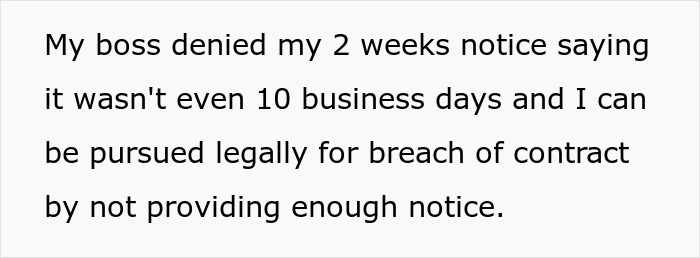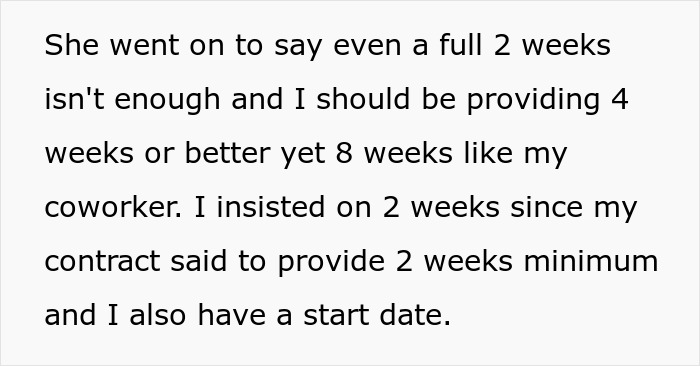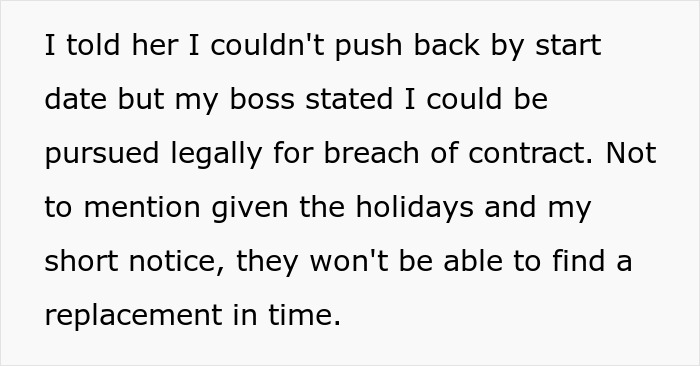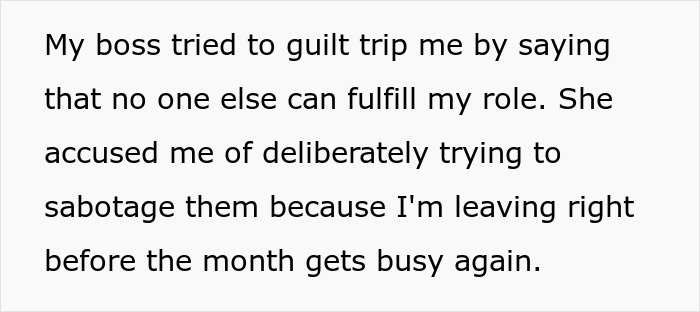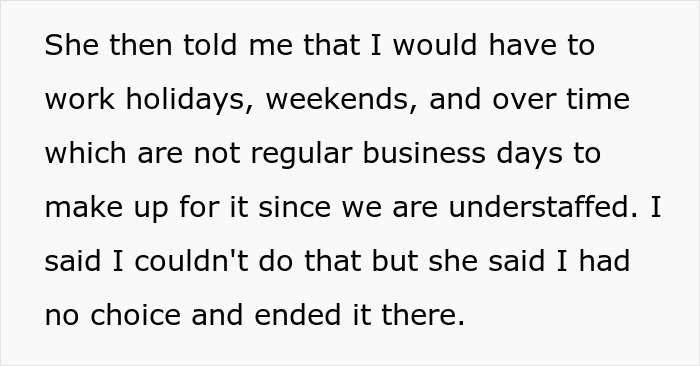
When an employee gives two weeks’ notice, their boss tells them they can’t leave on such short notice
The standard rule of thumb for most jobs is that when it’s time to move to another job, it’s polite to give your employer two weeks’ notice before you leave. This 14-day timeline is not fixed, and in certain cases, employees may give more notice to help their team, or less notice to escape a particularly hostile workplace. . But usually he has two weeks as his magic number.
However, recently an employee I contacted the Antiwork subreddit Concerned about your boss denying your two-week notice request? They were told they would have to give 4-8 weeks notice instead, so I asked on the internet if this arbitrary timeline could actually be enforced. Read the description and some of the replies left by our readers and let us know in the comments how you feel about this situation.
Have you ever quit your job with 2 weeks or so of notice? Feel free to share your personal experience with fellow pandas in the comments. bored panda An article highlighting that filing notices does not always go as planned. Here!
After two weeks’ notice was denied, the employee sought advice online to see if her boss could legally ask her to work longer.
Image credit: Kelly Sikkema (not actual photo)
Image credit: Scott Graham (not actual photo)
Image credit: Caterpillar Weak893
Enthusiastic readers had so many questions that the employee later revealed the details in a reply.
This employee mentioned in the post that they live in Canada, so I did a little research to find out exactly what the employee’s rights are in Canada. About recruitmenta staffing agency in Calgary, actually No You even need 2 weeks notice. Hiring a new employee and learning how to adjust to her one less employee often takes at least a few weeks, so it’s considered a polite gesture, but no, this employer You cannot force an employee to join the company after two weeks. I have notified the administrator of the up.
what teeth Common law in Canada requires that you give your employer “reasonable notice.” “Two weeks’ notice is the norm, but under common law, this is not an expressly required time,” he explains on the About Staffing site. “Your version of a reasonable period could be two weeks notice or less. The purpose of this is to give your employer enough time to find an alternative to fill your role. This is obligatory on you whether or not you have an employment contract.”
Bosses also can’t prevent employees from quitting if they want to. “They may try to persuade or bully you into staying, but they cannot legally prevent you from leaving the position,” says About Staffing. If you have signed a contract, please review it to make sure you are not agreeing to work any specific number of days or through any specific calendar days.”
In the case of this Reddit employee, as far as we know, he was legally allowed to leave after giving us two weeks’ notice. Their employers may have started panicking about being understaffed over the holidays and, using their fears, desperately wanted their employees to stay.according to Robert Half Talent Solutionsit is common for managers to require employees to stay for more than two weeks after deciding to leave, but it is request not a request.
“Employees may legally leave within two weeks of giving notice, but [employers] Delegating duties and hiring suitable replacements takes time,” explains Robert Half. “In this case, you can negotiate with the employee to extend their tenure with the organization. Obviously, you will want to do this as soon as possible. Please don’t forget.”
We have reached out to this employee on Reddit and hope to have an update on the situation soon. If there are too many toxic employers and they keep workers doing what they want they will never learn a lesson. We welcome your thoughts on this situation in the comments section. increase. If you’ve ever been pressured to stay beyond the two-week notice, feel free to share how you dealt with that conflict. Then if you’re interested in reading another of her Bored Panda articles about employers who didn’t take their workers’ retirement well, you’ll find that here. Here!



